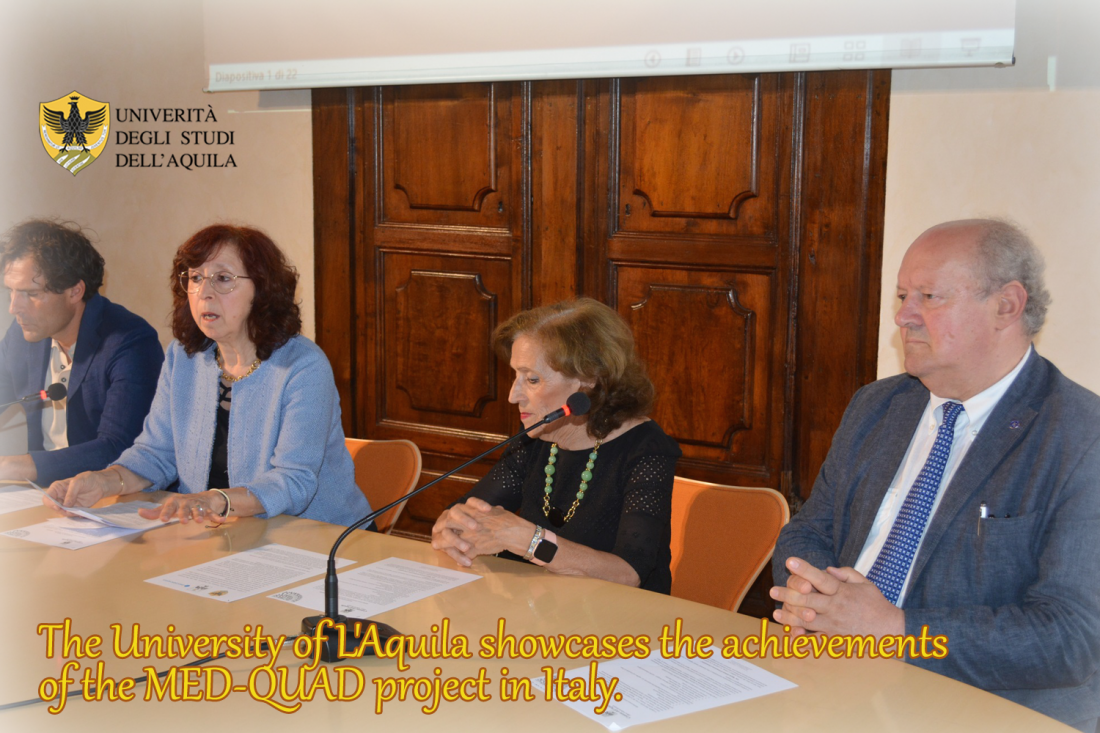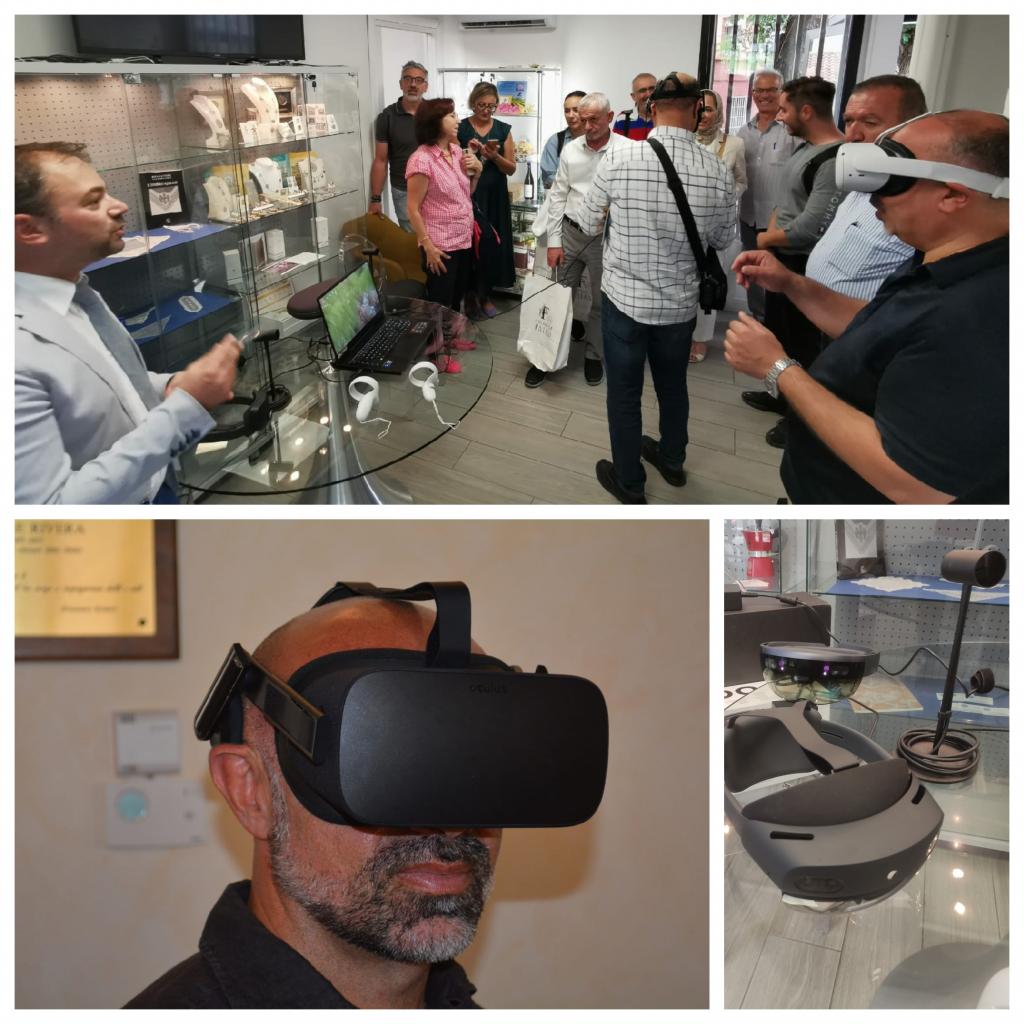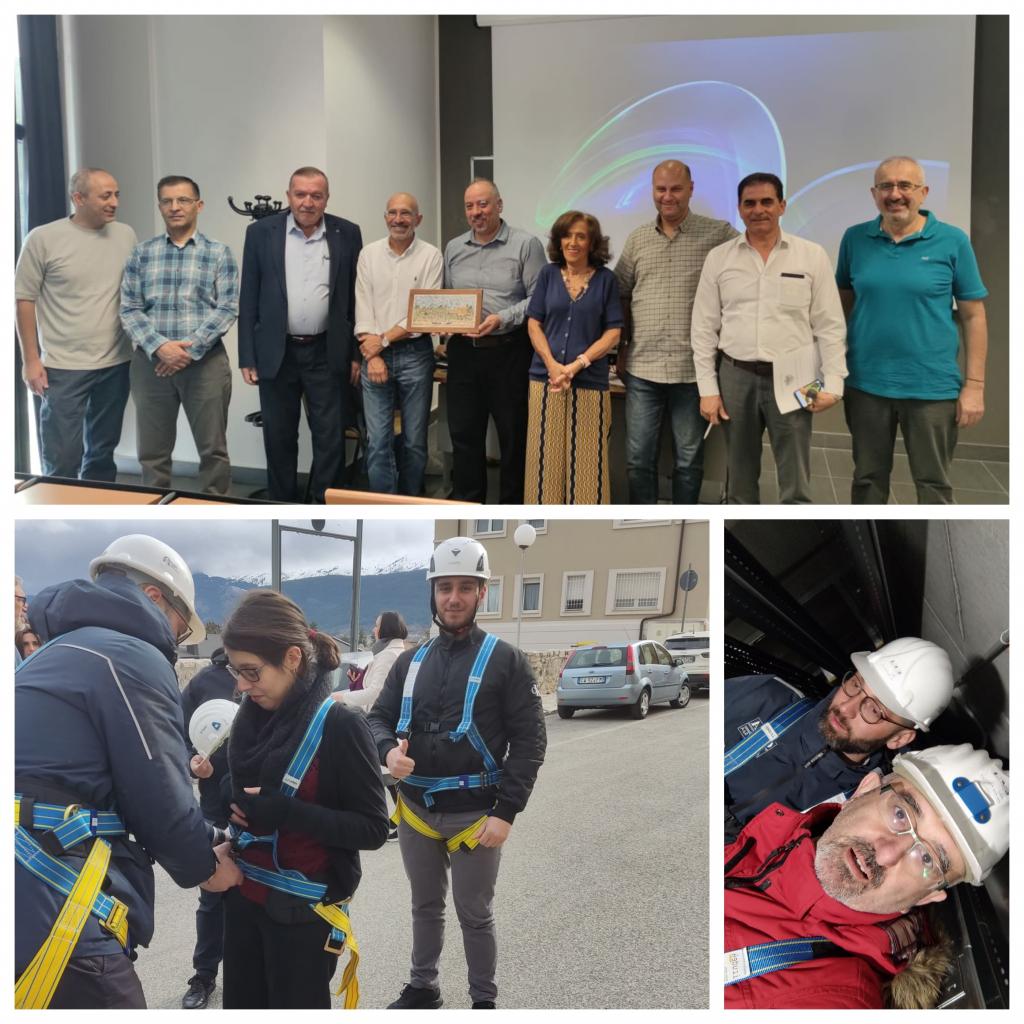MED-QUAD achievements in Italy in water smart solution and cultural heritage through ICT tools

The MED-QUAD project in Italy has emerged as a catalyst for transformative change, producing noteworthy outcomes in various domains. A key focus of the initiative has been the establishment of a Quadruple Helix Approach, fostering discussions and collaboration on vital themes such as the development and preservation of heritage sites and the assessment and management of water quality through Key Enabling Technologies. Prof. Anna Tozzi (the Local Project Manager) and Dr. Francesco Tarquini (Staff Expert), representing the University of L’Aquila, the MED-QUAD project partner from Italy, briefly highlight the achievements.
MED-QUAD played a vital role in reinforcing the concept of a “Civic University” by fostering the development of “City Development Groups”. The specific groups comprise representatives from the Quadruple Helix, working on sustainable regional development in terms of water quality and the promotion of cultural heritage through digitization in their city. The project has facilitated numerous technical meetings, uniting stakeholders to address the development and preservation of heritage sites in Italy. Collaborative sessions with the City Development Group (CDG) and Water Managing Authority (GSA) have enabled continuous quality monitoring of the Chiarino Basin located in the north of L´Aquila in Italy. This involved the installation of a multi-parametric probe and an automatic sampling system. Τhe water provided to citizen equipped by the Smart meters cams from several basins including Chiarino. Additionally, CDG members and university staff engaged in collaborative meetings with local citizens to analyze new services in the Living lab located at the tourism info point of city of L’Aquila.
Two Cross-border Living Labs (an open space accessible to the citizens where pilot projects regarding new products and services are tested) have been established, serving as spaces where citizens' needs are discussed with experts and policymakers to find collective solutions. The Smart Water Use Applications - SWUAP Lab conducted a successful pilot test of smart meters in households, prompting the Water Managing Authority (GSA) to extend the experimentation to all customers. The Applied Research for Cultural Heritage Exploitation - ARCHEO Lab focused on the Amiternum archeological site located about 10 km from L´Aquila, developing a 3D virtual and accessible model for visitor use. Similar models were created for the reconstruction of Santa Maria ad Cryptas and S. Massimo in Forcona church in the region of L´Aquila too in collaboration with startup companies.
Four training courses were organized, with two targeting the academic community and two directed at the CDG, emphasizing the role of a Civic University in community service. Additionally, the University of L'Aquila organized the thematic seminar entitled 'The Strategies for Achieving Local and Global Sustainable Development: the MED-QUAD Contribution' on the 2nd and 3rd of March 2023 at the Human Studies Department in L'Aquila. The seminar was attended by 22 participants, and the partners' representatives gave an interesting interview during their visit to the Anfiteatro Romano Di Amiternum. The CDG underwent practical training on the use of developed products and services of the MED-QUAD project for effective project result dissemination.
In addition, as part of the project, the partners established over 20 synergies with representatives of Mediterranean bodies and other European projects. The project team actively participated in various scientific meetings organized by its partners. In the MED-QUAD project, in addition to the seven partners comprising the coordinating partner Epimorfotiki Kilkis sm Llc (Greece) and academic institutions such as the International University of Greece (DI.PA.E.), University of L'Aquila (Italy), Arab Academy for Science, Technology and Maritime Transport - AASTMT (Egypt), Al-Balqa 'Applied University - BAU (Jordan), Palestine Polytechnic University - PPU (Palestine), and University of Sousse (Tunisia), six additional partners from the participating countries played an active supporting role. These supporting organizations collaborated voluntarily in the project's implementation by promoting its objectives, contributing to crucial decisions through participation in discussions and meetings, monitoring activity progress and project results, facilitating wider dissemination and utilization of the results, and supporting the multiplication of corresponding actions in the future. The MED-QUAD project has received support from the Municipality of L'Aquila in Italy.
Research cooperation resulted in an agreement with the representatives of the Arab Academy for Science, Technology and Maritime Transport-AASTMT, the project partner from Egypt, for a PhD in co-tutelle focusing on the Civic University and the Quadruple Helix Approach. The selected student is Eng. Rania Rageh, the supervisor are for Italy Prof. Fabio Graziosi and for Egypt Prof. Fadia El Marakby and the title of the Phd thesis is: “The role of disrupting technologies in managing the Civic University of the future. The importance of UN agenda 2030 for High Education transformation towards a full implementation of quadruple Helix model for decent work environment in Egyptian universities”.
The MED-QUAD project has made substantial strides in co-creating shared solutions to real-life problems. The tangible nature of its activities and results has garnered interest from the local and national scientific community, as evidenced by the project's presentation during the 100th-anniversary celebration of the Council of National Research (CNR) in the section dedicated to Living Labs. The initiative stands as a testament to the power of collaborative efforts in driving sustainable development and addressing pressing societal challenges.











